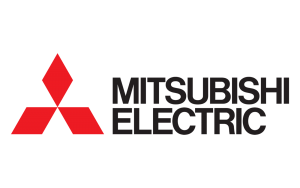AIR CONDITIONERS




experienced team
Helcro Electrical has been providing airconditioning services in Melbourne and its surrounds for over 15 years. Our expert, fully qualified electricians and refrigeration specialists provide a wide range of specialist airconditioning and electrical services that are fully compliant with the current AS/NZS 3000:2018, AS/NZS 3823.1.1 and other relevant Australian Standards.
Our Services
- Ducted Airconditioning
- Split Systems
- Multi Split Systems
- Building Projects
- Ventilation
- Heat Pumps
Our Business
- Fully Licenced and Endorsed
- Residential and Commercial
- 16 Years Experience
- Servicing Melbourne and its Surroundings
- 5 year Installation Warranty
Our Brands
- Daikin
- Fujitsu
- Mitsubishi Electric
- Mitsubishi Heavy Industries
- Carrier
- Haier
Things to know about
AIR CONDITIONERS
How Do Aircons Work?
An aircon is able to cool indoor air via refrigeration. This is done by converting liquid to gas. When a liquid turns to gas, it absorbs heat. An aircon uses chemical compounds to repeatedly evaporate and then condense, which allows units to produce cold air.
Aircons rely on refrigerants and fans, allowing cold air to be produced and then spread throughout a property. Aircons contain evaporator coils, and when hot air flows over those coils, the refrigerant inside those coils absorbs that heat. Indoor air is chilled by the refrigerant, and the gas that is produced during this process is compressed and cooled before it is turned into a liquid again.
How Long Does An Aircon Last?
The lifespan of an aircon can vary based on a number of factors. While some units, such as geothermal systems, are designed to last for decades, it’s more common for an aircon to last somewhere between 15 and 25 years. If an aircon is not properly maintained, however, the lifespan could be shorter than that.
When an aircon begins to reach the end of its lifespan, that unit is likely to see a decrease inefficiency. This means that the unit will expend more power in order to keep a home cool. In situations like this, it can be more cost-effective to replace the unit, even if the unit is still running.
How Can You Keep An Aircon In Good Condition?
As mentioned above, regular servicing and maintenance is key to keeping an aircon in good shape. It’s also smart to be aware of common problems. If you keep an eye out for warning signs, you’ll be able to address issues quickly and prevent any further damage to a unit.
As an example, many aircon systems have an outdoor unit, and these units can be damaged by debris. The condenser unit is particularly susceptible to damage. By regularly clearing away this debris, you can keep your unit in good condition, which can save you from future repairs.
What Are Some Of The Different Types Of Aircons?
While all units function on the same basic principles, there are actually many types of aircons on the market. When investing in an aircon, it’s best to learn more about the options available so that you can select a system that meets your needs. Some of the systems available include:
- Central aircons
- Ductless systems
- Portable aircons
- Window units
- Geothermal units
- Hybrid units
While some systems consist of a single unit, such as a portable or window aircon, it’s also very common to see systems with multiple units. As an example, a ductless system would consist of an outdoor unit and at least one indoor unit.
If a home has multiple indoor units, it is possible to have different temperatures throughout the home. Each unit will typically have its own thermostat settings. Some thermostats are programmable, which means temperature settings can be changed even when you are not in the building.
How Long Does An Aircon Last?
The lifespan of an aircon can vary based on a number of factors. While some units, such as geothermal systems, are designed to last for decades, it’s more common for an aircon to last somewhere between 15 and 25 years. If an aircon is not properly maintained, however, the lifespan could be shorter than that.
When an aircon begins to reach the end of its lifespan, that unit is likely to see a decrease inefficiency. This means that the unit will expend more power in order to keep a home cool. In situations like this, it can be more cost-effective to replace the unit, even if the unit is still running.
How Can You Keep An Aircon In Good Condition?
As mentioned above, regular servicing and maintenance is key to keeping an aircon in good shape. It’s also smart to be aware of common problems. If you keep an eye out for warning signs, you’ll be able to address issues quickly and prevent any further damage to a unit.
As an example, many aircon systems have an outdoor unit, and these units can be damaged by debris. The condenser unit is particularly susceptible to damage. By regularly clearing away this debris, you can keep your unit in good condition, which can save you from future repairs.
How Can You Select The Right Aircon For Your Home?
If you’re installing a new aircon in your home, there are a number of important factors to consider. To start, you’ll want to look at the system the property already has in place. If a ducted system has already been installed, a central system may be your best option. If a system like this is not in place, installing a central system will be more costly.
It’s also crucial to consider budget. Window and portable units are typically the most affordable options on the market. Of course, when looking at a budget, you’ll need to look at costs over time as well. If utility costs are likely to be high, a unit could wind up being more expensive in the long run.
Beyond that, you’ll want to consider your needs as well as your preferences. For a larger property, a central system or a ductless system with multiple indoor units might be the best way to keep the entire property cool. For small flats, a single window unit may be sufficient. Recently, smart technology has been on the rise, and you may find that a smart aircon is a worthwhile investment.
How Can You Improve The Efficiency Of Your Unit?
In addition to investing in an energy efficient unit, you can take many steps to make your aircon more efficient, such as:
- Closing all doors and windows
- Keeping heat producing appliances away from the thermostat
- Regularly cleaning vents
- Changing or cleaning the unit filter as recommended
- Improving the insulation in your home
Although there are many types of aircons, these systems are able to keep properties cool through the same basic principles. Once you have a clearer picture of how these units work and what your options are, you’ll be able to select the right cooling system for your home.
